92 years ago today, the English actor Sir Ian Holm was born. He became a successful actor with the Royal Shakespeare Company before launching a career in film and television which won him several BAFTAs. However, all this is simply a leadup to the career footnote that most people will be familiar with—that Holm was cast as Bilbo Baggins in The Lord of the Rings. READ more about the actor… (1931)
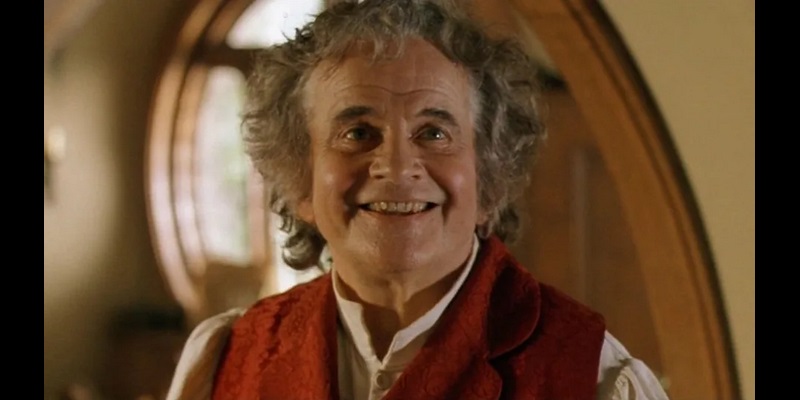
A chance encounter with Henry Baynton, a well-known provincial Shakespearean actor, helped Holm train for admission to the Royal Academy of Dramatic Art, where he secured a place from 1950. His studies were interrupted a year later when he was called up for National Service in the British Army. Graduating in 1953, he became a well-reviewed Shakespearean actor.
Holm’s first film role to gain much notice was that of Ash, the “calm, technocratic” science officer – later revealed to be an android – in Ridley Scott’s science-fiction film Alien. His portrayal of the running coach Sam Mussabini in Chariots of Fire earned him a special award at the Cannes Film Festival, a BAFTA award for Best Actor in a Supporting Role, and an Academy Award nomination for Best Supporting Actor. Holm was knighted in 1998.
MORE Good News on this Day:
- Jacqueline Lee Bouvier married Massachusetts Senator John F. Kennedy married in Newport, Rhode Island (1953)
- President John F. Kennedy in a speech at Rice University declared the US will get a man on the moon, and safely bring him back, by the end of the decade: “We choose to go to the moon in this decade and do the other things, not because they are easy, but because they are hard.” (1962)
- The 50th Space Shuttle mission was launched with the first black woman aboard, Mae Carol Jemison, on Endeavour on STS-47 (1992)
- Dutch lawmakers gave same-sex couples the right to marry and adopt children (2000)
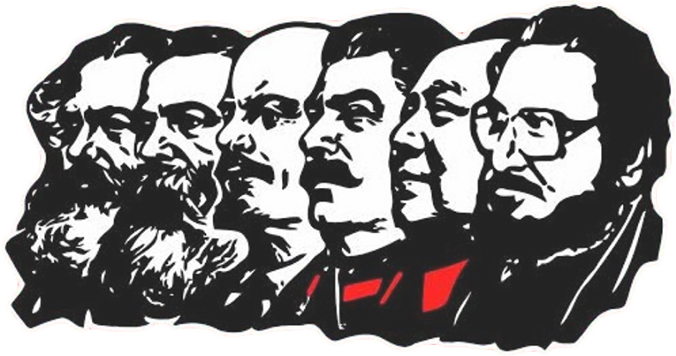
31 years ago today, Peruvian authorities captured the domestic terrorist Abimael “Chairman Gonzalo” Guzman, leader of the guerilla revolutionaries the Shining Path. After his capture the rest of the Shining Path leadership fell as well, and their violence abated. In the course of his revolutionary efforts, Guzman believed himself and his ideas to be the logical conclusion to Marxism, and which built on what was “achieved” with Marxist-Leninist-Maoist thought. However just like his predecessors this mostly involved the mass-murder of the very class in society he claimed to stand up for.
In the late 70s, the Shining Path movement was at first largely confined to academic circles in Peruvian universities, spreading “Gonzalo Thought” as a communist revolutionary doctrine that supposedly built on what Marx, Engels, Lenin, Stalin, and Mao wrote and practiced. In May 1980, the group launched its war against the government of Peru.
As their “armed struggle” went from burning ballot boxes to violent clashes with police and military, militias of especially indigenous locals called “rondas,” which Gonzalo Thought prescribed as one of the key tools in the Shining Path’s revolution, simply joined forces with the government, believing the Path to be brutal and godless thugs.
If all communist regimes go through four stages, revolution, organizing the party, the first major planning disaster, and the totalitarian police state, the only thing Gonzalo Thought built on was the speed at which a communist movement reached the last stage. By 1983 the Shining Path was nothing more than a hated band of terrorists hunted by everyone in society, and their violence was primarily directed at the urban poor and farmers since it was they who were supposed to have supported the Path in their struggle.
He was captured by an elite anti-terrorist unit after inspections of a compound’s garbage found a skin cream for psoriasis, an ailment Guzman was known to have. He was sentenced to life in prison in several different trials. (1992)
177 years ago today, English poet Elizabeth Barrett eloped at age 40 with the dashing poet Robert Browning. Elizabeth’s 1844 volume Poems earned her great success, and the admiration of Browning who wrote her a letter, “I love your verses with all my heart, dear Miss Barrett,” praising her “fresh strange music, the affluent language, the exquisite pathos and true new brave thought.”
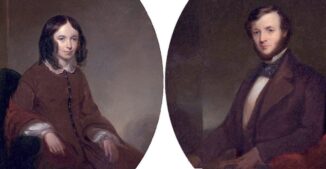
Their marriage was carried out in secret, due to her father’s disapproval (he later disinherited Elizabeth), but thus began one of the most famous romances in literature. After marrying in London, the couple moved to Italy, where they had a son named Pen and lived comfortably until her death 15 years later. At her husband’s insistence, the second edition of Elizabeth’s Poems included her love sonnets. The book increased her popularity and high critical regard, cementing her position as an eminent Victorian poet. Her final collection of poems was published by Browning shortly after her death. Their extraordinary correspondence and love letters were published online in 2012.
Elizabeth’s work had a major influence on prominent writers of the day, including the American poets Edgar Allan Poe and Emily Dickinson. She is remembered for such poems as her Sonnet 43, How Do I Love Thee? (1846)
How do I love thee? Let me count the ways.
I love thee to the depth and breadth and height
My soul can reach, when feeling out of sight
For the ends of Being and Ideal Grace.
I love thee to the level of everyday’s
Most quiet need, by sun and candlelight.
I love thee freely, as men strive for Right;
I love thee purely, as they turn from Praise;
I love thee with the passion put to use
In my old griefs, and with my childhood’s faith;
I love thee with a love I seemed to lose
With my lost saints,—I love thee with the breath,
Smiles, tears, of all my life!—and, if God choose,
I shall but love thee better after death.
Today, the first Sunday after Labor Day, is Grandparents Day in America, a day to honor the elderly population and express gratitude and love for your grandparents. In 1979, the day was officially proclaimed by President Carter, after decades of lobbying from two distinct people, Jacob Reingold and Marian McQuade, the West Virginia woman who persuaded her state to become the first one to celebrate elders with a special day.
83 years ago today, the extraordinary Paleolithic cave paintings in Lascaux, France were discovered by an 18-year-old boy. The complex of caves contained paintings of mostly large animals estimated to be 17,300 years old. The location was opened to the public eight years later, but the visits eventually endangered the artwork and were suspended. The stunning murals were being damaged by exhalations, heat, and other contaminants produced by 1200 visitors a day.
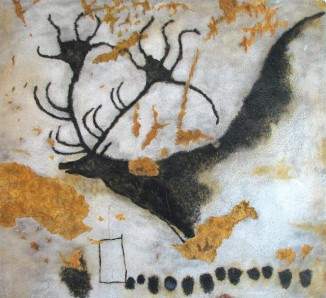 With lichen on the walls and paintings, the caves were closed in 1963 to preserve the art. Two hundred meters away, Lascaux II, a replica of the Great Hall of the Bulls and the Painted Gallery, was opened in 1983 so visitors may view the painted scenes without harming the originals. (1940)
With lichen on the walls and paintings, the caves were closed in 1963 to preserve the art. Two hundred meters away, Lascaux II, a replica of the Great Hall of the Bulls and the Painted Gallery, was opened in 1983 so visitors may view the painted scenes without harming the originals. (1940)
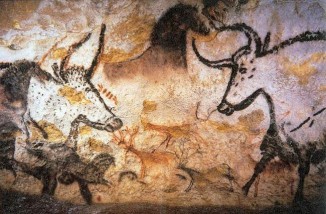
79 years ago today, R&B, soul, and disco artist Barry White was born. A three-time Grammy Award–winner known for his distinctive bass-baritone voice and seductive songs, such as, Can’t Get Enough of Your Love, Babe, You’re the First, the Last, My Everything, and Never, Never Gonna Give You Up, two of which he wrote. Nicknamed ‘The Walrus of Love’, as one of the most distinctive voices of his generation, White racked up 106 gold albums worldwide—and sold more than 100 million records—making him one of the best-selling music artists of all time. (Watch him performing his biggest hit in the video.)
White grew up in South Central L.A. running with gangs, but also listened to his mother’s classical albums and learned the piano. His voice suddenly deepened at age 14, and while he was in jail for four months at age 16, he listened to Elvis Presley singing It’s Now or Never on the radio—an experience that he later credited in his autobiography with changing his life. It was once said, “If chocolate fudge cake could sing, it would sound like Barry White.” (1944-2003)
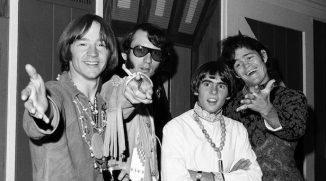
Also, on this day in 1966, the first television episode of The Monkees premiered on NBC. The NBC series, featuring Americans Micky Dolenz, Michael Nesmith, Peter Tork, and British actor-singer Davy Jones, ran for a total of 58 episodes. Initially envisioned as a TV show about an imaginary band, the actor-musicians, however, soon became a real band that wrote and toured with five #1 hit songs. Originally instructed to stay out of the recording studio, they eventually fought for and earned the right to collectively supervise all musical output under the band’s name. The sitcom was canceled in 1968, but The Monkees continued to record music through 1971. The band sold more than 75 million records worldwide and had international hits, including “Last Train to Clarksville”, “Pleasant Valley Sunday”, “Daydream Believer”, “Valleri”, and “I’m a Believer”. At their peak in 1967, the band outsold The Beatles and The Rolling Stones combined.
WATCH a Running Gags Supercut…
SHARE the Milestones, Memories, and Music…



















